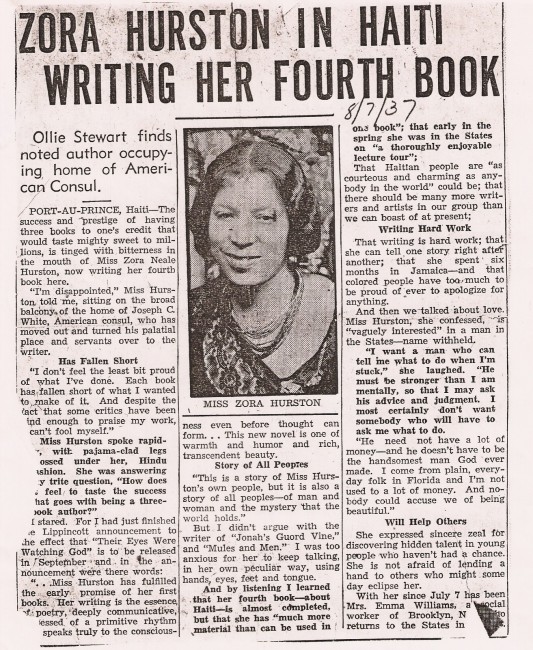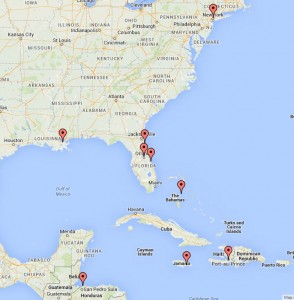Teaching the African Diaspora with Their Eyes Were Watching God: Students Researching Through Fieldwork and Fiction
Lesson Guide Overview
Grade levels: 10th-12th Grade Subject areas: Language Arts/English/Literature
Interdisciplinary Connections: This Lesson Plan is an extension or framework plan for discussion Their Eyes Were Watching God by Zora Neale Hurston. It could be modified to discuss any chapter/portion of the novel or to discuss chapters from Tell My Horse in a social studies class that is studying the Caribbean. It connects with Geography, Human Geography, Sociology, and World History as well.
Key words: global competency, research skills, Zora Neale Hurston, close reading, annotating, dual-entry journal, Latin America, race and racism, gender, spirituality, Haiti, Jamaica, the U.S. South
Summary
This lesson plan can be used either as an extension plan or a general plan for a discussion of Their Eyes Were Watching God in a High School English/Literature/Language Arts Class. It can be modified to discuss other works, and for use in social studies classrooms, in conjunction with CLAS’ lesson plan on the documentary Poto Mitan. In this lesson, students will briefly learn about Zora Neale Hurston’s work as a social scientist who studied folklore and culture in the black diaspora across the U.S. and Latin America. Students will discuss the major questions Hurston addressed in her research on the African Diaspora, and how they might have impacted her while writing Their Eyes Were Watching God during a research trip in Haiti. They will then use this framework to develop a research question about folklore, experience, and culture that they will trace through the novel. A special focus on gender, race, and spirituality is a suggestion, but teachers can amend this to whichever themes in the text they’d like to highlight, making it easy applicable to multiple approaches to the text. This activity will stimulate a close reading of the text and a research and evidence-based approach to discussing the novel. It will also urge students to see social science and literature as connected, and to connect insights and questions about the human experience from literature to the study of cultures in the U.S. and beyond.
PowerPoint: PPT Zora Neale Hurston Teaching Diaspora Through Fieldwork and Fiction


